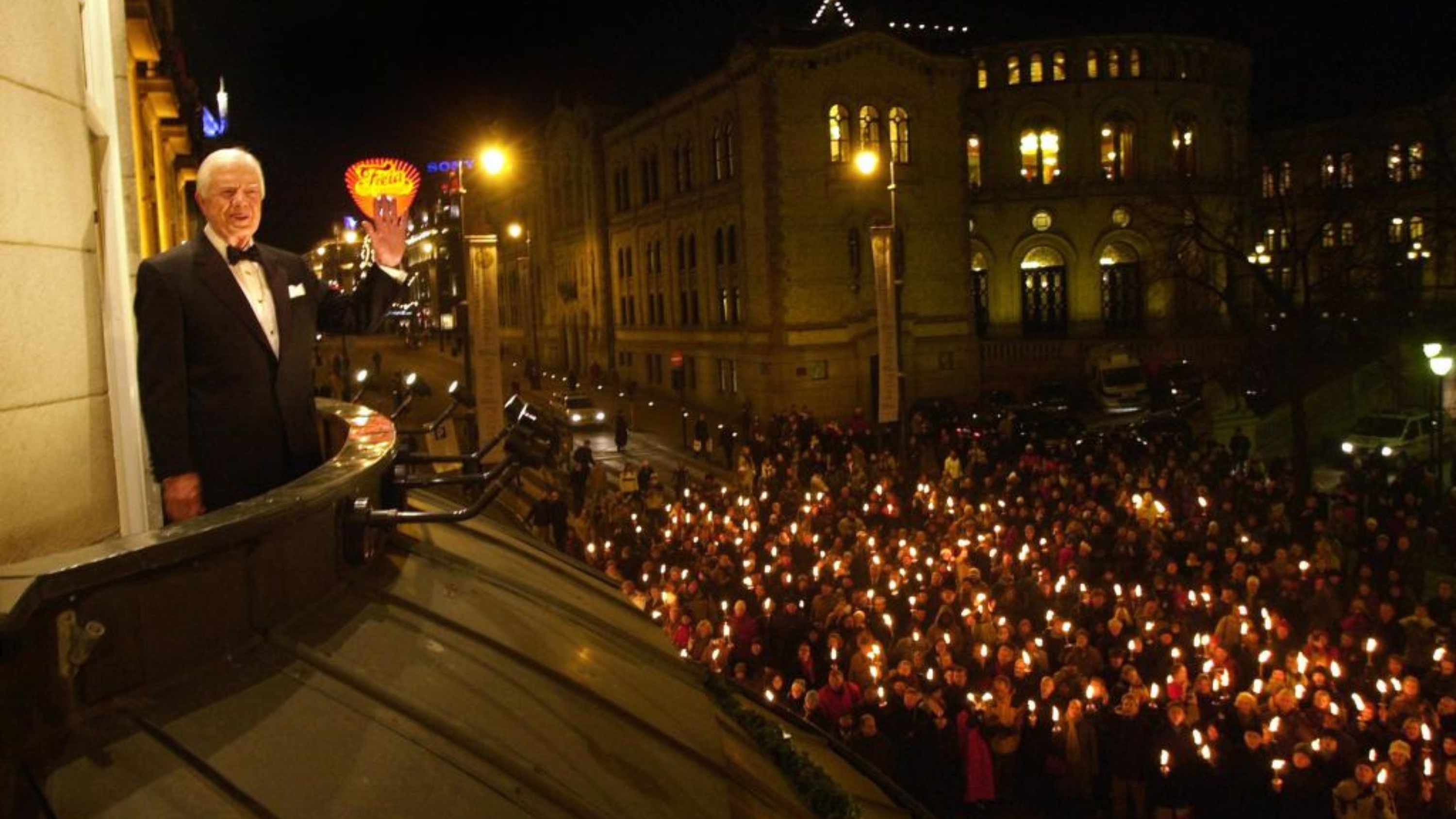When Jimmy Carter won the Nobel Peace Prize 0:28
(CNN Spanish) --
Former US President Jimmy Carter won the Nobel Peace Prize in 2002 for his work in the search for peaceful solutions to conflicts and in the promotion of human rights, an award that at that time At the time it was also seen as a criticism of then-President George W. Bush's campaign to intervene in Iraq.
The Nobel committee then highlighted Carter's decades of "untiring effort" to "find peaceful solutions to international conflicts, advance democracy and human rights, and promote economic and social development."
By then Carter, who served as president from 1977 to 1981, had been repeatedly nominated for the award.
He came close to winning it in 1979, when he brought together then-Israeli Prime Minister Menachem Begin and Egyptian President Anwar Sadat to sign the Camp David peace accord that ended 31 years of war between the two.
Jimmy Carter greets attendees of a torchlight procession in central Oslo, before the banquet of the Norwegian Nobel Prize Committee, December 10, 2002. (Credit: Erlend Aas/ Pool/ AFP/ Getty Images)
Carter won the Nobel Peace Prize in 2002 among 156 candidates (117 individuals and 39 groups) who were competing for the award in that edition.
Carter's work after leaving the White House
Behind the recognition was the work of the Carter Center, which he founded after leaving the White House in 1981, after losing re-election to Ronald Reagan.
advertising
"When I left the White House I was a fairly young man and I realized that I had maybe 25 more years of active life left," Carter explained at the time, "so we took advantage of the influence that I had as the former president of the largest nation in the world. world and we decided to fill gaps".
Carter spent the decades after leaving the White House traveling around the world to oversee elections, promote human rights, and provide health care and food to countries in need.
The Carter Center, in fact, has observed a total of 113 elections in 39 countries since 1989. Another of its main achievements is the near eradication of Guinea worm disease, which went from more than three million cases in 1986 to 14 cases in 2021.
The invasion of Iraq, backdrop of the Nobel to Carter
The award announcement came just hours after a milestone that would mark recent American history: the green light from Congress for then-President George W. Bush to use military force against Iraq.
When asked if the choice of the former president was a criticism of Bush, Gunnar Berge, head of the Nobel committee, said at the time: "With the position that Carter has taken on this, it can and should also be seen as a criticism of the line that the current US administration has taken with regard to Iraq".
However, other members of the Nobel committee distanced themselves from Berge's criticism of Bush.
They claimed at the time that the director was expressing a personal opinion and that those criticisms were not part of the discussions that resulted in Carter's casting.
What is certain is that in its description of Carter's work for peace, the committee said in 2002: "In a situation currently marked by the threats of use of power, Carter has stood firm in the principles that conflicts must be resolved , to the extent possible, through mediation and international cooperation based on international law, respect for human rights and economic development".
Jimmy Carter Nobel Peace Prize









/cloudfront-eu-central-1.images.arcpublishing.com/prisa/N2FIVZQWLLD6P5LU4ANSJRRVXU.jpg)


/cloudfront-eu-central-1.images.arcpublishing.com/prisa/KMEYMJKESBAZBE4MRBAM4TGHIQ.jpg)


